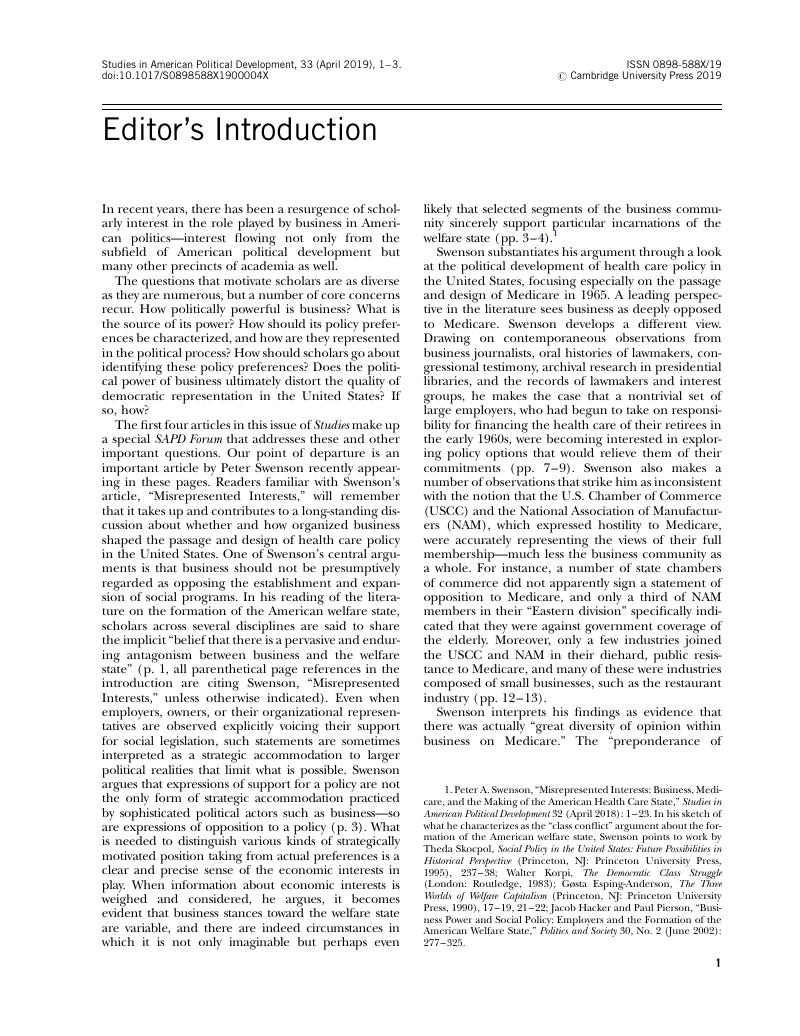No CrossRef data available.
Article contents
Editor's Introduction
Published online by Cambridge University Press: 01 May 2019
Abstract

- Type
- Introduction
- Information
- Copyright
- Copyright © Cambridge University Press 2019
References
1. Swenson, Peter A., “Misrepresented Interests: Business, Medicare, and the Making of the American Health Care State,” Studies in American Political Development 32 (April 2018): 1–23CrossRefGoogle Scholar. In his sketch of what he characterizes as the “class conflict” argument about the formation of the American welfare state, Swenson points to work by Skocpol, Theda, Social Policy in the United States: Future Possibilities in Historical Perspective (Princeton, NJ: Princeton University Press, 1995), 237–38Google Scholar; Korpi, Walter, The Democratic Class Struggle (London: Routledge, 1983)Google Scholar; Esping-Anderson, Gøsta, The Three Worlds of Welfare Capitalism (Princeton, NJ: Princeton University Press, 1990), 17–19, 21–22Google Scholar; Hacker, Jacob and Pierson, Paul, “Business Power and Social Policy: Employers and the Formation of the American Welfare State,” Politics and Society 30, No. 2 (June 2002): 277–325CrossRefGoogle Scholar.
2. Anthony S. Chen took the lead on putting this SAPD Forum together, soliciting the comments and providing editorial input to the authors. Eric Schickler was recused from involvement because he was one of Broockman's graduate advisors.
3. Broockman, David E., “The ‘Problem of Preferences’: Medicare and Business Support for the Welfare State,” Studies in American Political Development 26 (October 2012): 83–106CrossRefGoogle Scholar; Swenson, Peter, “B is for Byrnes and Business: An Untold Story about Medicare,” Clio 16 (June 2006): 3, 39–43Google Scholar.


